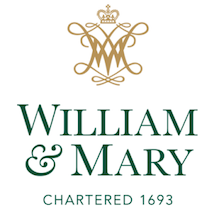 Last semester, the College of William and Mary in Williamsburg, Virginia, launched a competition to solicit conceptual ideas for a Memorial to African-Americans Enslaved early in the educational institution’s history. Recently, President Katherine A. Rowe announced that she has selected a winner from over 80 submissions.
Last semester, the College of William and Mary in Williamsburg, Virginia, launched a competition to solicit conceptual ideas for a Memorial to African-Americans Enslaved early in the educational institution’s history. Recently, President Katherine A. Rowe announced that she has selected a winner from over 80 submissions.
The winning concept, “Hearth,” was created by William Sendor, a 2011 alumnus of the college, and it resembles a brick fireplace where the community can gather to honor the work of the enslaved, many of whom worked at a similar hearth. According to the proposal, the concept is meant to rekindle the memory of the enslaved, illuminate a place to reflect on the university’s past, and radiate freedom and hope for the future. Although it may be altered during the design process, the concept for the memorial calls for the use of brick, a source of illumination and a place to highlight the names of the enslaved with room to add more as they are uncovered through research.
“The hearth is an ancient, powerful symbol of home, of community, and of belonging,” President Rowe said. “The exploited labor of enslaved African Americans helped create William & Mary, and this memorial concept will unequivocally recognize their lasting contributions to this institution, with humility, gratitude and conscience.”
When he was researching ideas for this project, Sendor came across a book about institutional slavery in Virginia written by another William & Mary graduate, Jennifer Oast. While reading the chapter about William & Mary, Sendor said he was struck by her discussion of fire and its role in the lives of the enslaved at the university.
“I was inspired by the idea of illumination,” said Sendor. “To figuratively illuminate the forgotten history and memory of these enslaved people who sacrificed and contributed immeasurably to William & Mary for over half of the College’s history, and then to physically illuminate a shared space for community gathering and reflection for generations to come.”
Now that a concept has been selected, a building committee will hire an architect, determine the exact placement of the new memorial, and finalize funding for it. As of now, $150,000 has already been committed towards the project.
“Every time we hold an event at the site, or visitors simply walk by for a closer look, they will see the names of the people who lived and labored here, uncompensated, between the school’s founding and the U.S. Civil War,” said Jody Allen, director of the university’s Lemon Project, an initiative aimed at researching the college’s role in slavery. “When students see the memorial, I hope they will understand that while W&M participated in an abominable institution, it is now making a genuine effort to address its past wrongs and move forward as a place that is sincerely committed to building and sustaining a truly inclusive community.”

